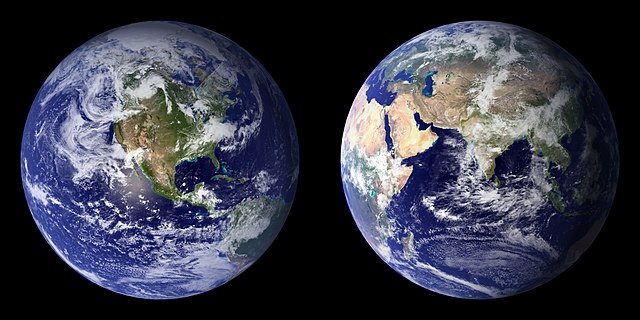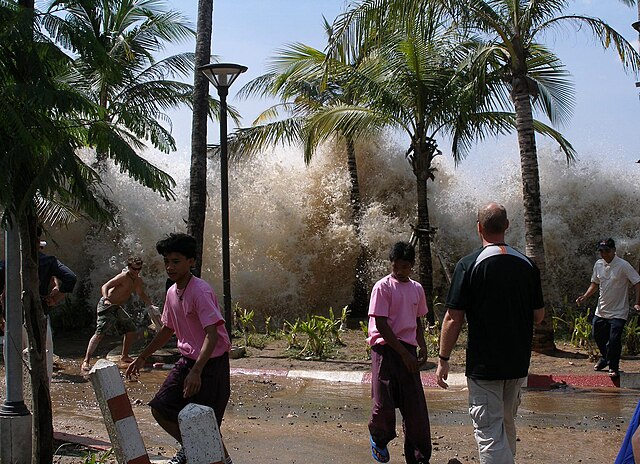Seawater, or sea water, is water from a sea or ocean. On average, seawater in the world's oceans has a salinity of about 3.5%. This means that every kilogram of seawater has approximately 35 grams (1.2 oz) of dissolved salts. The average density at the surface is 1.025 kg/L. Seawater is denser than both fresh water and pure water because the dissolved salts increase the mass by a larger proportion than the volume. The freezing point of seawater decreases as salt concentration increases. At typical salinity, it freezes at about −2 °C (28 °F). The coldest seawater still in the liquid state ever recorded was found in 2010, in a stream under an Antarctic glacier: the measured temperature was −2.6 °C (27.3 °F).
Seawater off San Andrés
Desalination plant
Marine life flourishing on the seafloor
Temperature-salinity diagram of changes in density of water
A sea is a large body of salty water. There are particular seas and the sea. The sea commonly refers to the ocean, the wider body of seawater.
Particular seas are either marginal seas, second-order sections of the oceanic sea, or certain large, nearly landlocked bodies of water.
Atlantic Ocean near the Faroe Islands.
Composite images of the Earth created by NASA in 2001
The 2004 tsunami in Thailand
Praia da Marinha in Algarve, Portugal








